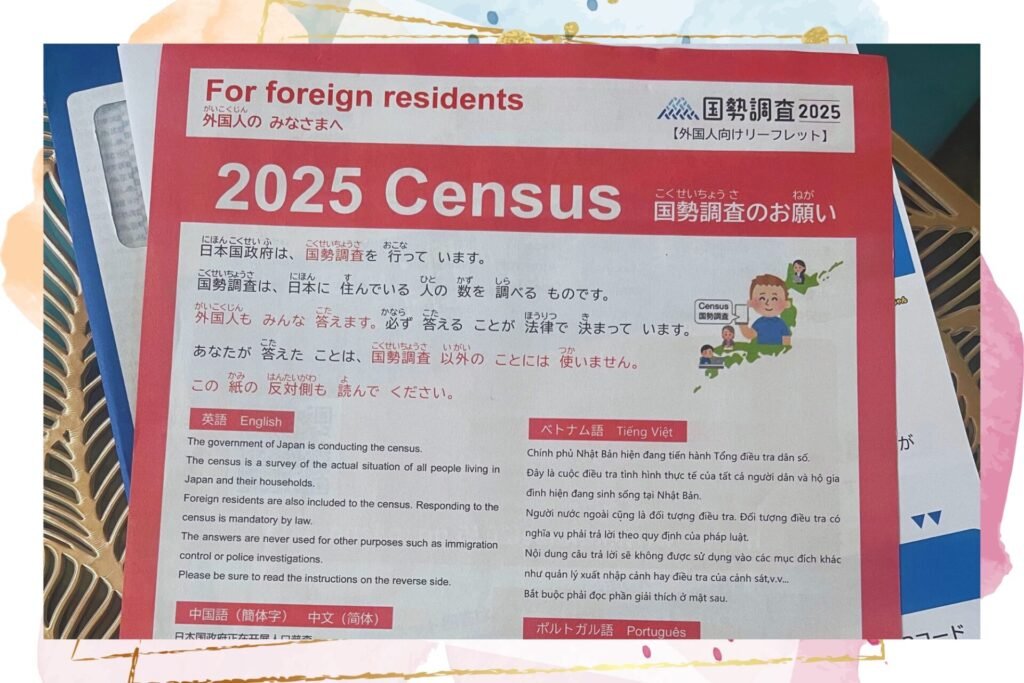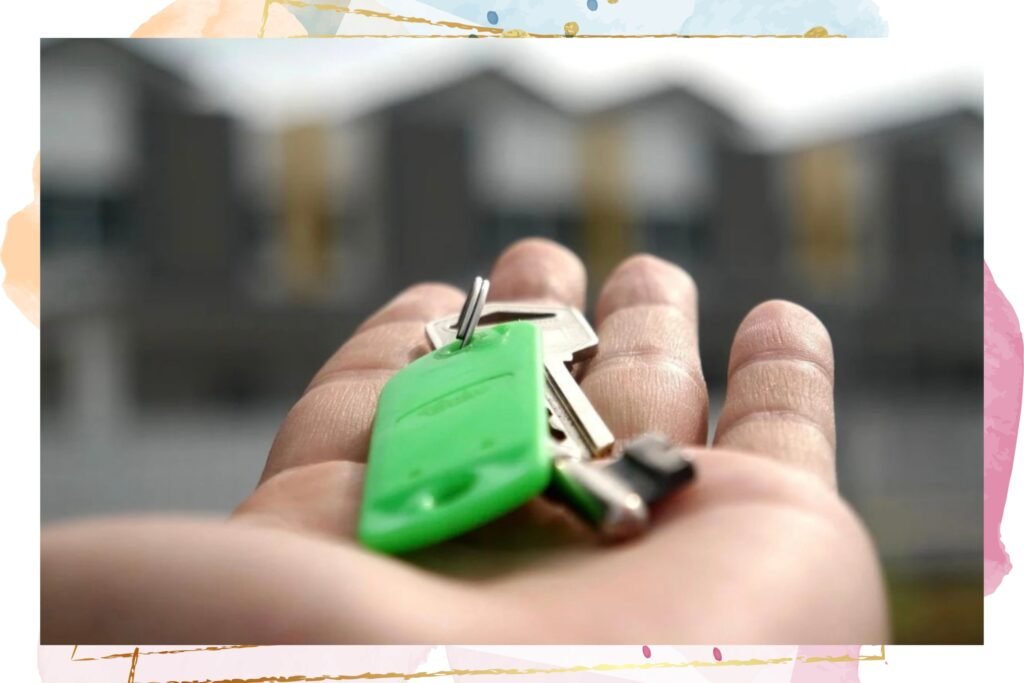One early morning, our doorbell rang. I peeked at the house monitor and saw a woman outside, wearing an official-looking ID from City Hall. My mind started asking: “Why is the staff from City Hall here? Is this about taxes? Immigration?”
When I opened the door, she smiled politely and asked me to confirm our exact address and family name. Then she handed me an envelope. Inside was something I didn’t expect — the Census form. To my relief, it even came with English instructions. She reassured me gently, “For you, online is easier. Please apply online — it’s more convenient for foreigners.”
I realized that this wasn’t just another Japanese form to struggle through. This was something bigger — something that included me, my children, my family, and even every foreigner living here. The Census isn’t only for Japanese citizens — it’s for all of us who call Japan home.
And now, in 2025, it’s happening again. So let’s talk about what it really is, why it matters, and how you can do it smoothly.
What Exactly Is the Japan Census?
The Census (Kokusei Tōkei) is the largest nationwide survey in Japan. It takes place every five years, and the 2025 Census will be the next one. The purpose is simple but powerful: to understand who lives in Japan and how the population is changing.
Here’s what it means in practice:
- Every household in Japan is counted — Japanese or foreigner, it doesn’t matter.
- It records basic information like the number of people in a household, age, gender, occupation, and type of work.
- It helps the government make policies for schools, hospitals, transportation, housing, and even disaster relief planning.
In short, it’s not about you personally — it’s about the bigger picture of Japan’s population and future planning. When you fill it out, you’re contributing to shaping the society you live in.
Is It Mandatory for Foreigners Too?
Yes — it’s mandatory for everyone living in Japan, including foreigners.
Many foreigners feel unsure when they first receive the Census envelope: “Do I really have to do this? Will anything bad happen if I don’t?” The answer is clear. The Census law requires every resident, regardless of nationality, to respond.
This isn’t immigration-related, and your answers aren’t shared with the immigration bureau or tax office. Instead, it’s handled by the Statistics Bureau of Japan, and all responses are kept strictly confidential. The law ensures that your personal details won’t be misused.
So don’t be afraid. Think of it as your voice being counted in the story of Japan.
How Will You Receive It?
You don’t need to go anywhere — the Census will come to you.
- Delivery: Census takers (usually temporary staff hired by City Hall) will come to your home, just like the woman who rang my doorbell that morning. They’ll either hand you the envelope directly or leave it in your mailbox.
- What’s Inside: The envelope usually contains a Census ID, instructions, and sometimes English materials for foreigners.
- The Options: You can fill it out on paper or do it online. For most foreigners, online is the easiest option, since the digital system is available in multiple languages, including English.
How to Fill It Out Online (Step by Step)
- Open the envelope and find your Census ID number.
- Go to the official website, or click HERE (the envelope will include the link). The English page is available.
- Log in using your Census ID and password.
- Choose your language (English, Chinese, Korean, Portuguese, Spanish, etc.).
- Answer the questions:
- Number of people in your household
- Names and relationships
- Gender, age, nationality
- Employment status and type of work
- Number of people in your household
- Submit — and you’re done!
The whole process takes around 10–15 minutes if you’re prepared.
What If You Don’t Respond?
Since it’s legally required, there are follow-ups if you don’t submit it:
- Census staff may come again to remind you.
- In rare cases, there can be penalties for refusal.
But more than that, not responding means your household isn’t included in shaping the services and resources of your community. For example, if many foreigners don’t respond, the government may underestimate the need for multilingual support, childcare services, or work-related programs.
By filling it out, you’re making life easier not only for yourself but for the foreign community in Japan.
Why the Census Matters for Foreigners
When I first realized that the Census was for me too, I felt a mix of pride and belonging. It reminded me that I’m part of Japan’s story, not just a temporary outsider.
The Census results affect real-life things:
- How many schools or daycare centers are built in an area.
- How hospitals and clinics are distributed.
- How public transport and housing projects are planned.
- How disaster relief supplies are estimated.
If you’re raising kids in Japan, working here, or simply building your life here, this matters. Your response helps paint a fuller, more accurate picture of Japan’s future.
Final Thoughts
That morning, when I saw the woman with the City Hall ID on my monitor, I kinda felt nervous. As foreigners, unexpected knocks at the door in Japan can make us worry: “Did I do something wrong? Is this about immigration? Am I in trouble?” But when I realized it was the Census, I felt relieved — and even grateful.
The Census is not a test, it’s not about judgment, and it’s not something to fear. It’s a way of saying: “You live here, so your presence matters.”
Whether you’ve been in Japan for twenty years or just a few months, your household’s story is part of the bigger picture of this country. By filling out the Census, you’re helping shape a future where schools, hospitals, and services reflect the real people who live here — including us, the foreigners who have made Japan our second home.
So when the envelope arrives, take it as a quiet reminder that you belong here, too. Your name, your family, your daily life — they are counted. They matter.
And maybe, like me, you’ll realize that this isn’t just paperwork. It’s Japan’s way of saying: “We see you. We count you. And you are part of our story.”


